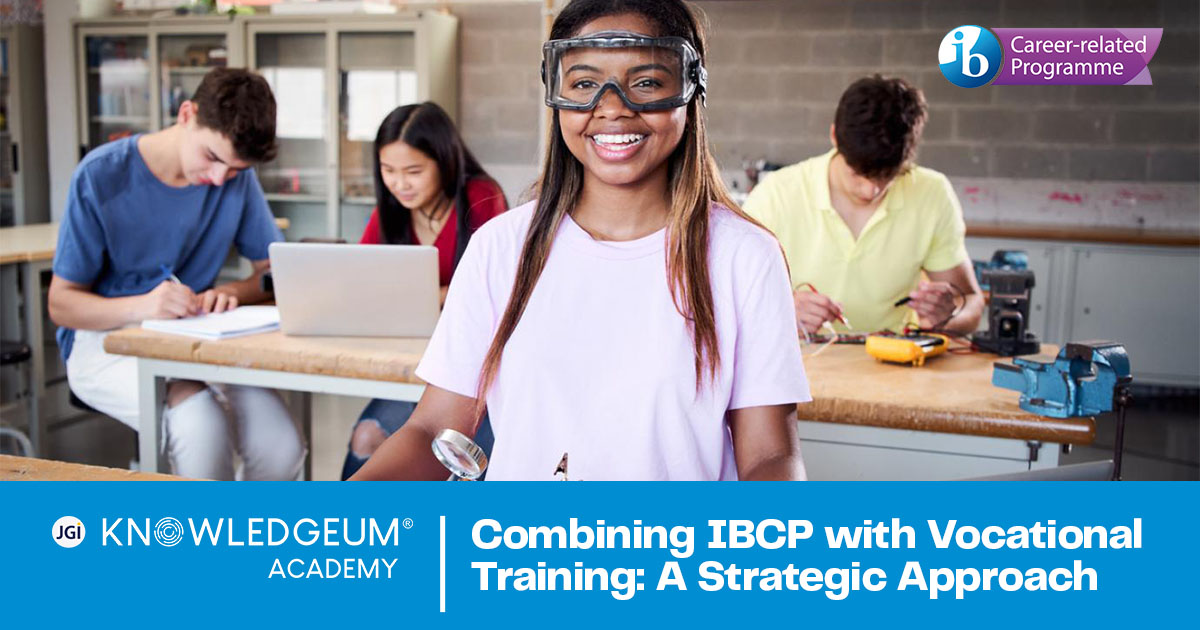In today's competitive job market, students need more than just book smarts. They need practical skills that they can use in their chosen careers. The International Baccalaureate Career-related Programme (IBCP) is a great option for students who want to combine academic learning with vocational training. This gives students both critical thinking skills and practical skills. This approach gives students a well-rounded education that prepares them for the challenges of the modern workplace.
The IBCP is for candidates of the ages of 16-19 years who are keen on career-related studies. The IBCP, unlike other Diploma programmes offered by the traditional IB, has flexibility extended to candidates since one gets to combine vocational and technical training with academic studies. The combination allows students to acquire academic knowledge while at the same time gaining hands-on experience in that particular career field.
The IBCP framework is based on four core elements:
Vocational training adds hands-on relevance to the academic stuff IBCP offers. It gives context to the theory learned in class and helps students see how their studies play out in the real world. Take an IT student, for instance. Through vocational training, they might use what they know about coding and network systems to build actual software or tackle tricky problems companies face.
What's more, vocational training often includes internships or work placements. These give students a chance to experience a professional setting firsthand. This doesn't just make them more hireable—it also helps them build a network of contacts that could lead to job opportunities down the line.
It is therefore an ideal pathway for those intending to join the workforce immediately after completion of the course and for those wishing to join colleges or universities. The practical skills acquired from vocational training can further complement a student's study path in higher education programmes, whereby many courses require experience and a deep understanding of the practice of industry.
A critical mass of employers today demand not only theoretical knowledge but also practical experience. The combination of IBCP's academic rigour and vocational training gears students to make their mark at work.
Strategically combining the IBCP with vocational training serves to deliver a holistic development in education that will combine learning and doing. This approach places such an amalgamation in the best worlds, ensuring the student is fully prepared for his or her future and careers. Any improvement in both theoretical knowledge and industry-specific skills uniquely prepares the student for an ever-changing job market. Thus, this is an ideal choice for ambitious young professionals.
Are you ready to pursue a career-oriented programme that blends academic excellence with practical learning? The International Baccalaureate Career-related Programme (IBCP) at Knowledgeum Academy offers subjects like Business Management, supported by the World Academy of Career Programmes, to prepare you for global opportunities. This internationally recognised programme emphasises critical thinking, hands-on learning, and professional growth.
Learn More© Knowledgeum
